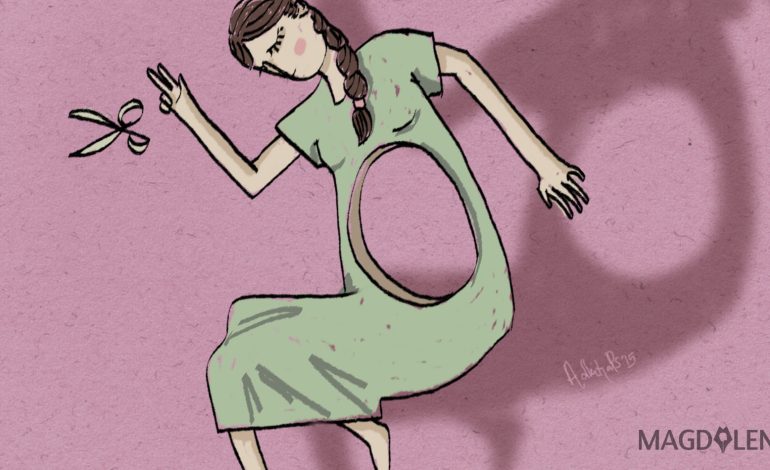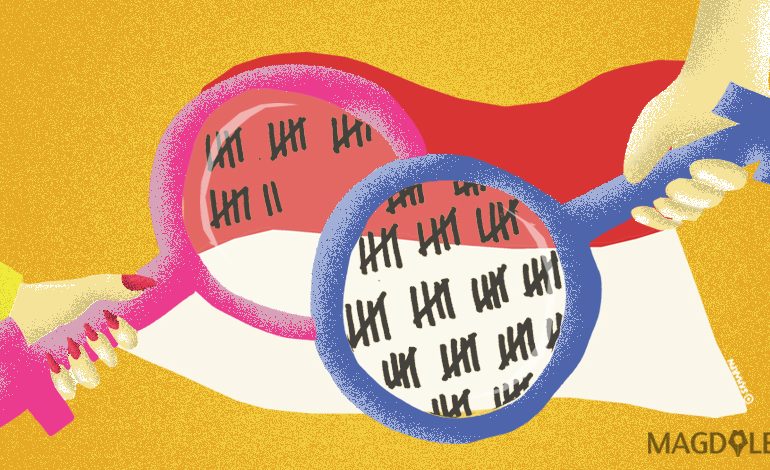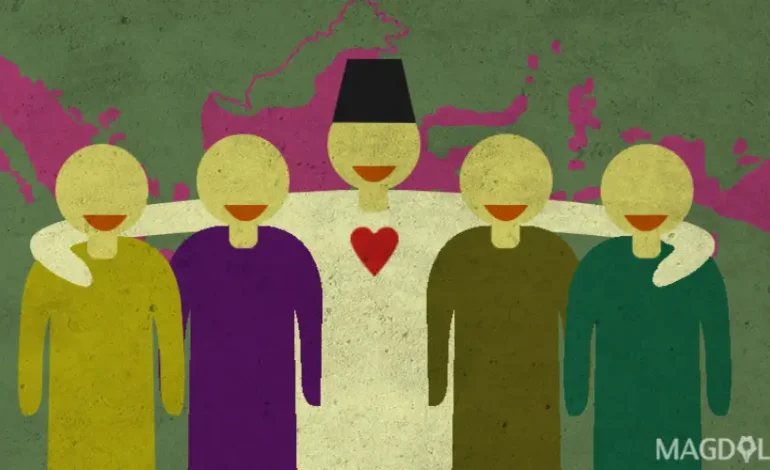The State of Abortion in Malaysia

In Malaysia, where contraception is a privilege for educated and informed family planning folks, unplanned pregnancies among unmarried young women is rising. The recent increase of baby dumping cases is alarming, and young women are shamed for getting pregnant out of wedlock. Termination of pregnancy is an option for unplanned pregnancies. Unfortunately, getting an abortion is a risky and fatal business in Malaysia.
Though legal, abortion comes with a heavy restriction in Malaysia. Section 312 of Malaysia’s Penal Code states that a termination of pregnancy is permitted only when there is a risk to the life of the pregnant woman or a threat of injury to her physical or mental health. Most Malaysian medical practitioners, however, refuse to perform abortion.
According to Dr Subatra Jayaraj, a medical practitioner and health rights activist, many doctors do not know that according to the law, abortions are allowed to be performed by registered doctors in Malaysia. This lack of knowledge of the law, compounded by the assumption that Malaysia is a Muslim country leads to doctors not providing termination of pregnancy services although it is a WHO-recommended primary care procedure. Moreover, doctors are also afraid of the social stigma attached to abortion service providers. Consequently, Malaysian women who end up with unplanned pregnancies often resort to illegal and risky abortion.
Personal religious beliefs and interpretation also determine whether or not doctors decide to provide abortion services or refer the patient to a safe abortion provider. Most doctors would definitely refer the patient to public hospitals if the woman’s life was in danger, as it is the only reason that termination of pregnancy is usually done in the public hospitals.
Socially, abortion is frowned upon in Malaysia, where majority of the population is Muslim. Most scholars of the Hanafi sect in Islam, alongside a small number scholars of other school of thoughts, agree that abortion is allowed below 120 days of pregnancy, but only when justified by a health necessity.
Unfortunately, many doctors and clients are unaware of this interpretation. The common assumption most people have is that abortion is forbidden by the religion. Even when the timeline of 120 days is used, the clause for “health necessity” is very narrowly interpreted to “saving the mother’s life” only.
Scientifically, abortion can still take place up to the third trimester of pregnancy, by inducing labor – which is permissible in some countries like Sweden – while the most optimum time for using abortion pills is up to week 9 of the pregnancy.
But the two abortion pills, Mifepristone and Misoprostol, are restricted and not approved for use in Malaysia, causing many to turn to black market abortion pills sold through social media. This is a cause for concern, as consuming these pills without medical supervision may result in complications and even death.
Overall, however, the case fatality rate is very low. On average four to six maternal deaths occur each year in the country due to abortions, out of half a million pregnancies. There have been documented cases of unsafe abortion practices in which severe bleeding occurred due to wrong dosages of medical abortion and at wrong gestations.
In the past, there has been only one case of a woman being punished for getting an abortion. Malar was a 24 year old migrant worker from Nepal who opted for an abortion six weeks into her pregnancy in fear of losing her job, as migrant workers work permits are revoked in the event of a pregnancy. The authorities raided the clinic where she had the abortion, on October 9, 2014 in Penang and arrested her and the doctor.
The Reproductive Rights Advocacy Alliance Malaysia (RRAAM) has pressured the Ministry of Health since 2017 to approve the use of regulated abortion pills to curb illegal prescription and online sale of the black market pills. But the authorities only responded by curbing registered doctors from purchasing Misoprostol. Nothing was done to online websites and quacks selling the pill without proper counselling or medical guidance. The excuse was that it was difficult to trace sellers online.
The unregulated trade of Misoprostol has been flourishing since then, while qualified safe abortion providers have had more difficulties accessing the medication.
In her book Reproductive Rights and Wrongs: The Global Politics of Population Control, author Betsy Hartmann said, “Denying women the right to abortion makes women bear all the hardship and blame for unwanted pregnancies, ignoring the fact that men bear responsibility too, and that many unwanted pregnancies result from unwanted intercourse.”
In the absence of government support, civil society groups like the Reproductive Rights Advocacy Alliance Malaysia is lobbying the Ministry of Health by highlighting the lived realities of women who have difficulty accessing an abortion in Malaysia. It also runs a WhatsApp Hotline that provides information on options for safe abortion services, and connects clients to reliable websites for medical abortion pills and women friendly clinics that provide safe abortion services.
By standing together for women’s body autonomy and authority, feminist movements supported abortion. A woman has the right to terminate pregnancy, regardless of their condition. Their rights to their own body should not be meddled by the authority, and access to abortion should be opened and informed.
September 28 is International Safe Abortion Day and it has its origin in Latin America and the Caribbean, where women’s groups have been mobilizing around the date for the last two decades to demand their governments to decriminalize abortion, to provide access to safe and affordable abortion services and to end stigma and discrimination against women who choose to have an abortion. The date was chosen in commemoration of the abolition of slavery in Brazil which is now remembered as the day of the “free womb” demanding for safe and legal abortion for all women.
We should remember this date to constantly push for woman to have their bodily rights not to be policed by the authority.
Herinza Syadza is a sexual and reproductive health and rights advocate based in Kuala Lumpur, currently creating content for Ilmu Seks and a feminist NGO, All Women’s Action Society (AWAM) in Malaysia. She believes in empowering young girls and women to have body authority and reclaiming their sexuality in the future.






















